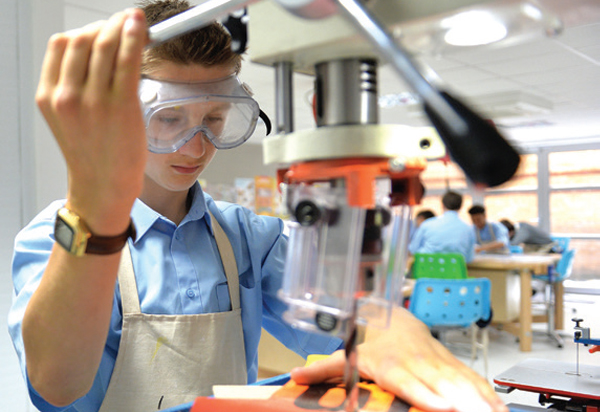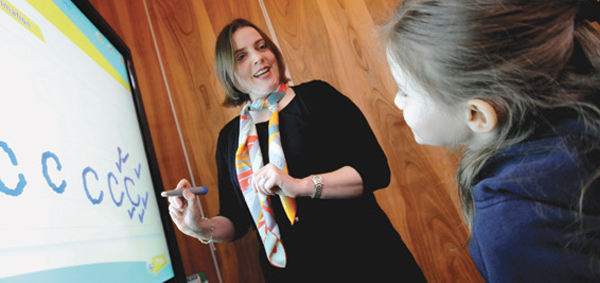Menu
THE RIGHT FIT – Marrying your child to the right school is challenging enough, but if they have special educational needs, the task becomes even more complex, explains Gillian Upton.
 With the child population growing, the demand for provision of support for children and young people with special needs is growing too. The aim of local authorities is to enable as many children as possible to access a mainstream education, even though the trend for schools to go down an ever more academic route means increasingly frequent tests, which may be far beyond some children. There are also practical challenges, such as when a physically disabled child can only access classrooms on the ground floor and there is no lift; or when a child has no peer group with whom to undertake a particular activity.
With the child population growing, the demand for provision of support for children and young people with special needs is growing too. The aim of local authorities is to enable as many children as possible to access a mainstream education, even though the trend for schools to go down an ever more academic route means increasingly frequent tests, which may be far beyond some children. There are also practical challenges, such as when a physically disabled child can only access classrooms on the ground floor and there is no lift; or when a child has no peer group with whom to undertake a particular activity.
When it comes to some types of specialist provision, a Special Educational Needs (SEN) unit or school may be more appropriate. “Inclusion has to be meaningful; it’s not just about being there,” says Carol Payne, Head of Special Needs, Disability and Psychology at Wandsworth Council. “We don’t want children to feel isolated.” A small proportion of children (just over 2% of the child population) may have significant needs which require a statutory Education, Health and Care Needs Assessment. The outcome of the assessment may lead to the child having an Education, Health and Care Plan and consideration being given to whether the child’s needs would be better met in a mainstream or special school.
DID YOU KNOW… …
THAT EDUCATIONAL PSYCHOLOGISTS ARE A RARE BREED, WITH ONLY 2,000 OF THEM FOR THE WHOLE OF THE UK?
In the Borough of Wandsworth, for example, there are 12 specialist resource bases which are part of mainstream schools, and seven special schools (see page 81). “For the majority of children it’s a comprehensive provision,” says Payne. The challenge, however, lies in anticipating demand. “That’s a vexed question for all authorities,” she says.
 Autism is one of the most prevalent conditions catered for in specialist resource bases and special schools. The spectrum of needs and the views of parents and carers dictates the best placement. There are resource bases for children with autistic spectrum disorder in a number of mainstream schools in Wandsworth, namely Ashcroft Technology Academy, Sacred Heart Primary School, Southmead Primary School, Tooting Primary School and St John Bosco College. Southfields Academy has a resource base for children with speech, language and communication needs and Smallwood Primary School has a language unit. There are also resource bases for nursery-aged children at Hillbrook Primary School and Eastwood Nursery. In addition, three special schools cater for children with autistic spectrum disorder and different levels of learning difficulty: Bradstow School in Kent, Garratt Park School and Paddock School.
Autism is one of the most prevalent conditions catered for in specialist resource bases and special schools. The spectrum of needs and the views of parents and carers dictates the best placement. There are resource bases for children with autistic spectrum disorder in a number of mainstream schools in Wandsworth, namely Ashcroft Technology Academy, Sacred Heart Primary School, Southmead Primary School, Tooting Primary School and St John Bosco College. Southfields Academy has a resource base for children with speech, language and communication needs and Smallwood Primary School has a language unit. There are also resource bases for nursery-aged children at Hillbrook Primary School and Eastwood Nursery. In addition, three special schools cater for children with autistic spectrum disorder and different levels of learning difficulty: Bradstow School in Kent, Garratt Park School and Paddock School.
“OUR LITERACY AND NUMERACY LESSONS ARE TARGETED AT WHAT THE CHILD NEEDS IN ORDER TO ACCESS THE REGULAR CURRICULUM”
SEN covers a broad range of learning difficulties, ranging from dyslexia, multiple learning difficulties and physical disabilities to breathing difficulties, feeding difficulties and sensory difficulties such as visual and hearing impairment. Greenmead Primary School, for example, is a mixed day school for children with physical disabilities and/or profound and multiple learning difficulties. Linden Lodge School caters for children with severe visual impairment and other complex needs, Oak Lodge Primary School for deaf and language-impaired students. In the maintained sector in Wandsworth, Sellincourt Primary School and Southfields Academy have units for pupils with hearing impairment, and The Alton Primary School has a resource base provision for pupils with moderate learning difficulties.
 McLeod Centre for Learning
McLeod Centre for LearningPaddock School, which has sites in Putney and Roehampton, caters for pupils with severe and complex learning difficulties, including autistic spectrum disorders. It will be able to offer 60 more places when it moves to a larger site vacated by Greenmead School in Putney. Greenmead, for children with physical and/or severe and profound learning disabilities, is being co located with Ronald Ross Primary School in West Hill.
SEN provision in Wandsworth’s special schools extends to the age of 19. Some young people continue to access support in colleges of further education (FE) and South Thames College has a specialist resource for young people between 19 and 22 years old. “The big focus is to support those young people who are able to move on to employment,” says Payne.
If it is not possible to find an appropriate placement for a child with SEN in their local borough, the local authority will look to another borough or the independent sector. Ultimately, it’s a collaborative process, particularly since parents can express a preference under the new SEN code. “If it’s a reasonable choice we will consider it and try to meet the need,” says Payne. If parents are unhappy with the decision, disagreement-resolution teams work with families to avoid an appeal to the SEN and Disability Tribunal. Parents are also able to access mediation provided by independent organisations. Less than 5% go through this process.